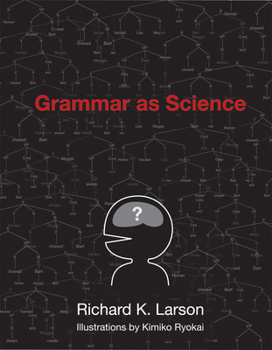Grammar as Science
Select Format
Select Condition 
Book Overview
An introduction to the study of syntax that also introduces students to the principles of scientific theorizing.
This introductory text takes a novel approach to the study of syntax. Grammar as Science offers an introduction to syntax as an exercise in scientific theory construction. Syntax provides an excellent instrument for introducing students from a wide variety of backgrounds to the principles of scientific theorizing and scientific thought; it engages general intellectual themes present in all scientific theorizing as well as those arising specifically within the modern cognitive sciences. The book is intended for students majoring in linguistics as well as non-linguistics majors who are taking the course to fulfill undergraduate requirements. Grammar as Science covers such core topics in syntax as phrase structure, constituency, the lexicon, inaudible elements, movement rules, and transformational constraints, while emphasizing scientific reasoning skills. The individual units are organized thematically into sections that highlight important components of this enterprise, including choosing between theories, constructing explicit arguments for hypotheses, and the conflicting demands that push us toward expanding our technical toolkit on the one hand and constraining it on the other.
Grammar as Science is constructed as a "laboratory science" course in which students actively experiment with linguistic data. Syntactica, a software application tool that allows students to create and explore simple grammars in a graphical, interactive way, is available online in conjunction with the book. Students are encouraged to "try the rules out," and build grammars rule-by-rule, checking the consequences at each stage.
Related Subjects
Language Arts




